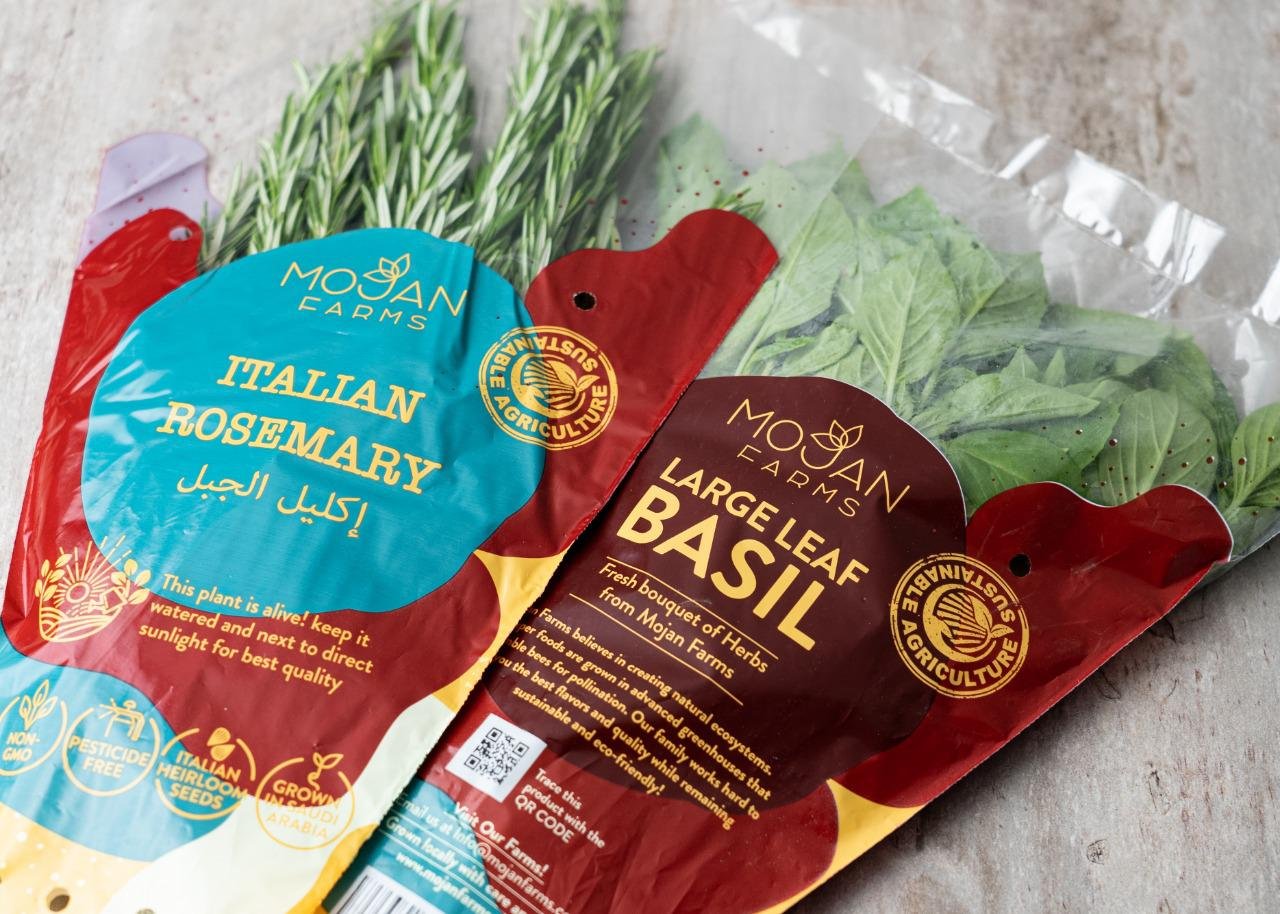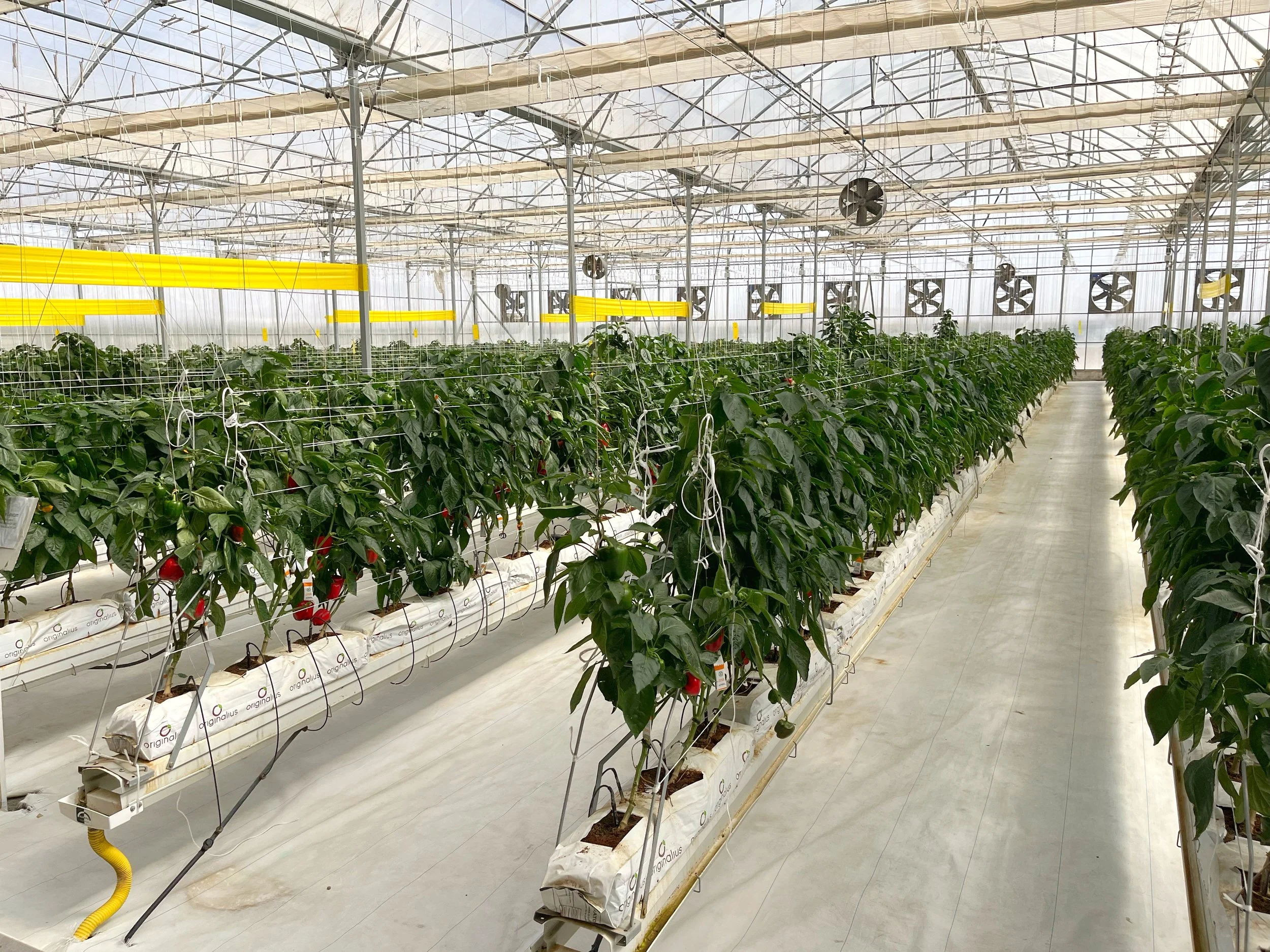May 26, 2023
Challenges and Innovations Driving the CEA Sector in GCC and MENA

Credit: Mojan Farms.
Written by: Niko Simos
May 26, 2023
Climate change presents a significant threat to global water and food security. The MENA region is experiencing higher temperatures, more severe droughts, and increased occurrences of extreme weather events with greater intensity and frequency. Among the 17 MENA countries affected by water risks, 12 are currently grappling with high water stress levels, including the UAE.

Credit: World Resources Institute
According to Strategy and PWC, GCC countries import about 85% of their food and approximately 56% of vegetables, largely due to the highly limited arable land in the region, averaging 4.25%.
So how can these countries ensure food security, save water, and mitigate climate change while working with limited arable land?
As stated by Ryan M. Lefers, Mark Tester and Kyle J. Lauersen on their article Emerging Technologies to Enable Sustainable Controlled Environment Agriculture in the Extreme Environments of Middle East-North Africa Coastal Regions, “MENA coastal regions hold incredible untapped potential for agriculture driven by the combination of key emerging technologies in future greenhouse concepts: transparent infrared collecting solar panels and low energy salt water cooling.” The proliferation of controlled environment operations in the region, particularly those employing innovative production methods and energy generators, holds great promise. This abundance of CEA initiatives is expected to enhance food security and mitigate the impact of climate change.
Agritecture consulted CEA operations in the region and noted the challenges that they face.
According to CEA operators, some challenges faced by the sector are:

Credit: Frontiers in Plant Science
The hype surrounding the industry inflates the successes and can gloss over the serious issues that need to be addressed.
With the fragmentation of the CEA ecosystem comes an absence of clear and consistent quality standards.
Everything required for cultivation needs to be imported.
With an influx of new farms entering the market annually, many lack awareness of the financial and logistical intricacies involved in farming.
Heightened competition drives prices down.
Competitive plane-based imports benefit from expedited delivery and no import taxes.
In the Middle East, it is difficult to alter consumer behavior and it may take time to shift the mindset to embrace the benefits and quality of European produce.
The costs of production (energy and water) and the understanding of their products by intermediaries, such as retail and trading partners, becomes crucial as they act as gateways to potential buyers
However, there are numerous CEA operations across the region who are tackling these challenges and promising a sustainable future with locally grown greens:
KRISPR, a company established in 2021 and currently operational, is based in Dubai, UAE. Their main focus lies in the production of leafy greens, herbs, and microgreens using indoor Controlled Environment Agriculture (CEA) methods. What sets KRISPR apart is their commitment to incorporating innovative technologies in their operations. Looking ahead, the future of the sector in the region may present challenges, yet KRISPR remains dedicated to their mission and aims to carve a niche in the industry.

Herbs grown by Mojan Farms. Credit: Mojan Farms
Mojan Farms, an innovative agricultural venture established in 2020, based in Jeddah, Saudi Arabia, nestled amidst the desert in the enchanting region of Khulais. The remarkable journey of Mojan Farms originated with the founders' venture into the world of Neapolitan pizzerias. Through their culinary experiences and the pursuit of quality ingredients, they made a startling realization—there was a scarcity of locally grown produce beyond the realm of traditional crops. Today, Mojan Farms proudly supplies a fresh blend of products to over 100 supermarket branches across Saudi Arabia. Utilizing hydroponic greenhouses and isolated grow beds, they ensure the pristine quality of their produce while harnessing the power of data to minimize errors and risks. At the heart of each greenhouse lies cloud-based monitoring, facilitating optimal crop management. Mojan Farms operates 4,500 square meters with different crops such as Italian Basil, Siberian Kale, Pak Choi, San Marzano tomatoes, and Habanero peppers.
Mojan Farms are also focusing on captivating packaging, spirited school tours, and collaborations with innovative startups.

Credit: Greener Crop Inc.
Established in 2020, Greener Crop Inc. emerged with a mission to support new farmers in the CEA sector, with operations spanning multiple countries, including the U.S., U.A.E., Qatar, Oman, and Saudi Arabia. Greener Crop Inc. has established and continues to launch farms in these regions, operating across a total area of 29,000 square meters, predominantly under greenhouses but also encompassing two indoor vertical farms. Greener Crop Inc. provides data-driven farm management services to new and existing CEA farmers. Supported by a team of agricultural engineers who analyze data remotely, they optimize work plans, devise crop protection strategies, and aim for maximum yield. What sets Greener Crop Inc. apart is their unique combination of on-site and remote support. When it comes to consumer preferences, the freshness, taste, and extended shelf life of produce from their farms are highly appreciated. Regarding electricity prices and water availability, Greener Crop Inc. strategically establishes farms in locations with favorable tariffs. Looking ahead, the future of the CEA sector in the region appears promising. The increasing demand for fresh, clean, and sustainable produce in all of their markets is a positive sign. The vulnerabilities exposed by the Covid-19 pandemic and current inflation levels have further amplified the need for localized food production, eliminating transportation costs and reducing food waste.

The Capsule by Ivvest. Credit: Ivvest.
Ivvest is a company that manufactures The Capsule, a plug-and-play feasibly priced modular smart container farming unit able to produce up to 14 tons of leafy greens per year. Each unit is empowered with IvvestOS, an indoor farming operating system that brings intelligence to the unit and controls the most sensitive operations including climate, lighting, irrigation and nutrient solution dosing. Their solution is a realistic and more efficient alternative for greenhouses with 5x higher ROI, 2-3 years faster payback period.
Sokovo Nature Farms, a company established in 2020, is eagerly awaiting local government approvals to commence its operations. Based in Dubai Industrial City, UAE, Sokovo Nature Farms focuses on vertical farming using controlled environment techniques. Their main crops include leafy greens, herbs, edible flowers, and microgreens. Additionally, they have plans to expand their production to encompass fruit plants, vegetables, and various other crops. What sets Sokovo Nature Farms apart is their commitment to blending nature and technology, creating sustainable and cost-effective growing methods. Their current grow area is 1500 square meters, and has a planned expansion of an additional 3500 square meters. However, the sector does face its share of challenges. Looking ahead, Sokovo Nature Farms envisions a bright future given the region holds immense potential to become a prominent hub for agricultural produce and related activities.
